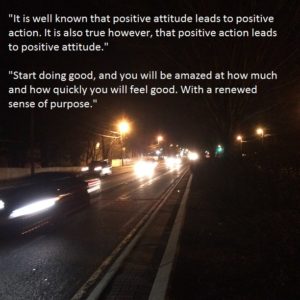 I hear a lot of tough talk about social media. “It’s not real.” “Facebook friends are not real friends.” “Why do we place so much value in the number of “likes” we get when they are meaningless?”
I hear a lot of tough talk about social media. “It’s not real.” “Facebook friends are not real friends.” “Why do we place so much value in the number of “likes” we get when they are meaningless?”
For starters, people are going to have to accept that this is now the new medium by which people socialize. Back in the early 20th century old men were complaining “They’ll never get me to use one of them crazy telephones. This method of communication is so impersonal. When I am talking to somebody I need to see them person in front of me. There is something lost in communication otherwise.” This is exactly what the social media nay-sayers of today sound like. They sound like all the grumpy old men complaining about the invention of the telephone.
“It’s not real.” OK then. How do you define real? If real is something you can see, feel, taste, and smell, then real is just electrical signals interpreted by your brain. Images in a computer screen are just the same. So in the end “real” is very subjective.
Example: I recall not too long ago poorly judging an acquaintance of mine because he spends too much time playing video games. I was thinking: “Is this guy so dissatisfied with our reality that he had to escape into another one. How sad.” Ah but I soon learned that I was ignorant in this thought process. Many of these realities are so vast, interconnect people so well, and have such a huge following, that they themselves are subcultures in our own society; in our own reality. And if a person can thrive in such a reality (make a living), then what difference does it make what reality they are in? It also turns out that there is little that our physical reality can offer, that their virtual reality can not.
Video games, fantasy culture (Magic the Gathering, Yu-gi-oh, War Hammer, D&D, etc), and digital media may seem fake to many, but it is real to those involved in that culture.
A “reality” that is man-made instead of nature-made is not any less of a reality. Perception is reality.
“Facebook friends are not real friends.” depends on your definition of friend. Let’s just be honest, most of the people we say are our friends are really just acquaintances right. We just say “hi”, “how ya doing”, “what’s going on”, “how are your kids” in passing. This is no different from those on FB. Except you don’t have to actually ask how they are doing, you can see it clearly in their posts. Your acknowledgement is in your “like”. The reason this is such an issue for people, is that they apply value to the number of friends they have now that there is a set clear number.
Attention junkies are attention junkies whether they are using digital media or not. Whether they are surfing FB to track down and build their friend base, or they’re circling the lunch room at work having pedantic small talk with a new person every five minutes, it’s all the same. it just so happens they can do it quicker online. This is not a digital media problem, this is an insecurity problem.
A FB “like” is just a simple acknowledgement saying “I have seen, and I agree”. That’s all. Ah, but this is a lot. No different than if you were to give a speech right in the middle of the NY Subway, and see how many people stop to listen, and how many just move along; or how many heckle you. It is an indication of a potential following, it is not? The only problem is that these social media outlets lend themselves to placing too much value in these “likes.” So much so, that people will place so much of their self-value in these “likes”. But again this is not a digital media problem, this is an insecurity problem. This is no different than being the unpopular kid is school that gets sad and angry because everyone treats them like they were invisible. Self-value should come from within.
Issues like popularity, image, bullying, and self value are issues that have always been around. All we did was just move them to a new context; a new medium. It makes little sense to blame the medium. If one kid gets beat up in the cafeteria by another kid, it hardly makes sense to blame the cafeteria.




 GO!
GO!